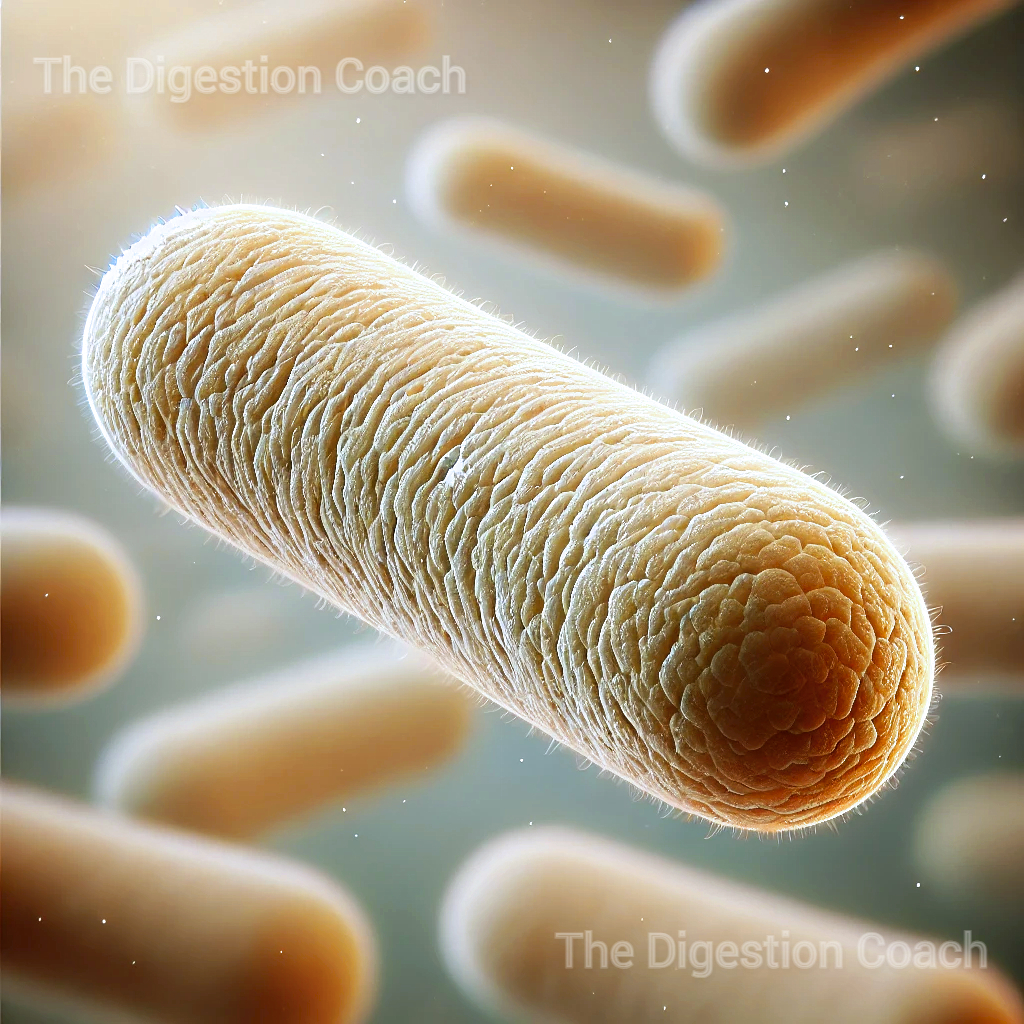Table of Contents
The Simple Version of the Story
The More Detailed Version of the Story
The Simple Version of the Story
How Bacteroides vulgatus Helps Keep Us Healthy
Bacteroides vulgatus is a helpful bacteria that lives in your gut and plays a significant role in keeping you healthy. Scientists have found that it makes a substance called pantothenate (vitamin B5), which helps your body release two important hormones: GLP-1 from your gut and FGF21 from your liver. These hormones travel to your brain and tell it to lower your sugar cravings, improve how your body uses sugar, and support overall health.
GLP-1 helps your body by making it release insulin when needed and slowing down how quickly food leaves your stomach. This keeps your blood sugar steady and helps control your appetite. FGF21 is another hormone that boosts your body’s sensitivity to insulin, helps you burn more energy, and reduces your desire for sugary foods. Together, they create a powerful system that helps keep your metabolism and brain working well.
How to Help Bacteroides vulgatus Thrive
To keep Bacteroides vulgatus strong and healthy, it’s important to eat the right foods. This bacteria loves plant fiber, so eating plenty of whole grains, beans, vegetables, and nuts can give it the fuel it needs to grow. These foods also produce other healthy substances in your gut that improve digestion and overall health. On the other hand, eating too much processed sugar and fat can upset your gut balance and make it harder for good bacteria to thrive.
Fermented foods like yogurt, sauerkraut, and kefir can help make your gut healthier overall, which supports Bacteroides vulgatus. Probiotic supplements might also help, though more research is needed to find the best ones. Staying active, getting enough sleep, and managing stress are also important because they help keep your gut and brain connected and healthy.
Why This Matters for Your Brain
Your gut and brain are connected, which means what happens in your gut can affect how you think and feel. When Bacteroides vulgatus helps control sugar cravings, it can lead to healthier eating habits and less inflammation, which is good for your brain. The hormones GLP-1 and FGF21 might also protect your brain, possibly lowering the risk of problems like memory loss or mood disorders.
In short, Bacteroides vulgatus is a tiny but powerful ally in your gut. By eating well and taking care of your body, you can help it do its job of keeping your metabolism and brain healthy.
The More Detailed Version of the Story
The Role of Bacteroides vulgatus and Pantothenate in Metabolic Health
Bacteroides vulgatus is a species of gut bacteria that plays a significant role in maintaining metabolic and neurological health. Emerging research highlights its ability to influence the body’s hormonal responses, mainly by producing metabolites like pantothenate, also known as vitamin B5. Pantothenate is integral to multiple physiological processes, including energy production and lipid metabolism. Recent findings show that pantothenate produced by Bacteroides vulgatus stimulates the secretion of glucagon-like peptide 1 (GLP-1) in the gut and fibroblast growth factor 21 (FGF21) in the liver. These hormones act on the hypothalamus in the brain to suppress sugar intake, improve glucose metabolism, and potentially reduce the risk of metabolic diseases like type 2 diabetes and obesity.
GLP-1 is an incretin hormone that enhances insulin secretion and slows gastric emptying, helping to regulate blood sugar levels and appetite. FGF21, on the other hand, is a hepatokine known for enhancing insulin sensitivity and reducing sugar cravings. Together, these hormones form a powerful duo in improving metabolic efficiency and brain regulation of feeding behaviors. These findings suggest a novel pathway through which the gut microbiota, specifically Bacteroides vulgatus, can influence systemic health.
Supporting Bacteroides vulgatus Growth
To promote the growth of Bacteroides vulgatus and maximize its metabolic benefits, it is essential to focus on dietary and lifestyle factors that support a healthy gut microbiome. Bacteroides species thrive on a diet rich in diverse plant-based fibers and complex carbohydrates. Foods such as whole grains, legumes, vegetables, and nuts provide prebiotic fibers that these bacteria ferment, yielding beneficial short-chain fatty acids (SCFAs) and other metabolites. Avoiding excessive consumption of processed sugars and fats is equally important, as these can disrupt the balance of gut bacteria and promote the growth of less beneficial species.
Fermented foods, such as yogurt, kefir, sauerkraut, and kimchi, may help indirectly support Bacteroides vulgatus by fostering a diverse and robust microbial ecosystem. Probiotics containing strains of Bacteroides or related beneficial microbes may also be beneficial, although targeted supplementation is still under research. Lifestyle factors such as regular physical activity, adequate sleep, and stress management have been shown to support a healthy gut-brain axis and may indirectly enhance Bacteroides populations.
Potential Implications for Neurological Health
The gut-brain axis plays a critical role in mood regulation, cognitive function, and behavior. By influencing hypothalamic pathways and modulating hormonal signaling, Bacteroides vulgatus may also contribute to neurological health beyond its metabolic effects. The suppression of sugar cravings, for instance, may reduce reliance on high-sugar diets, which are associated with neuroinflammation and cognitive decline. Additionally, GLP-1 and FGF21 have neuroprotective properties, offering potential benefits for conditions such as Alzheimer’s disease, depression, and anxiety.
Overall, the discovery of Bacteroides vulgatus‘s role in hormonal regulation underscores the importance of gut health in maintaining systemic and neurological well-being. As research evolves, understanding how to nurture this microbial ally may open new doors to therapeutic strategies for metabolic and neurological disorders.
COMPLIMENTARY 15-MINUTE CALL
Take your first step toward a renewed sense of well-being. Call today to arrange a complimentary 15-minute consultation.
Let’s discern whether my approach aligns with your needs.
I look forward to connecting with you at 714-639-4360.
Pantothenate: Microbiome-Mediated Regulation and Strategies to Combat Sugar Cravings




